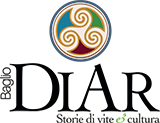
Wine, a long-standing symbol of tradition and culture, is undergoing a true revolution.
Answering this question might seem simple, but today we at Baglio Diar will attempt to explain everything behind the concept of “Vegan” in the world of wine and what distinguishes it from non-vegan wine.
It’s common to think that wine is simply made from grapes and therefore inherently vegan. In reality, during the process that takes wine from fermentation to our tables, animal-derived products are sometimes used as fining agents to clarify and reduce the turbidity of the final product.
But this should not be seen as unusual—quite the opposite.
Let’s have a look at these substances:
- Casein, a milk derivative, is used to remove polyphenols and is commonly employed in the clarification of white wines.
- Albumin (egg whites) helps precipitate any protein suspensions, thus making the wine clear.
- Animal gelatins, such as isinglass, are used to aggregate final sediments.
These substances are removed during the filtration phase, although there’s no guarantee that all particles are completely eliminated. Some might remain in tiny quantities, which doesn’t affect the wine but makes it unsuitable for vegan purists.
A vegan wine is one produced without the use of any animal-derived products at any stage of its production. In vegan wines, these fining agents are replaced with plant-based alternatives such as bentonite (a type of clay), activated charcoal, or proteins derived from peas, algae, etc. This ensures that the wine is entirely free of any animal derivatives, making it suitable not only for vegans but also for those following specific diets for ethical or allergic reasons.
But is vegan wine a real wine?
Absolutely. It is an alcoholic beverage that retains all the characteristics of traditional wine (taste, aroma, acidity, and tannins). The only difference is the absence of animal-derived products in its production techniques.
What are the benefits of producing vegan wine?
One of the most fascinating aspects of vegan wine is that it is often produced by those who, like Baglio Diar, also adopt sustainable and organic practices. This means that in addition to being vegan, the wine is typically produced with careful attention to environmental factors, minimizing the use of pesticides (in favor of plant-based fertilization), promoting biodiversity in vineyards, and providing new nutrients to the vines.
Moreover, an increasing number of producers are adopting vegan certifications to ensure transparency and build consumer trust. These are awarded to companies that adhere to the standards set by specific control organizations and are often clearly indicated on labels, making them easier for consumers to identify.
